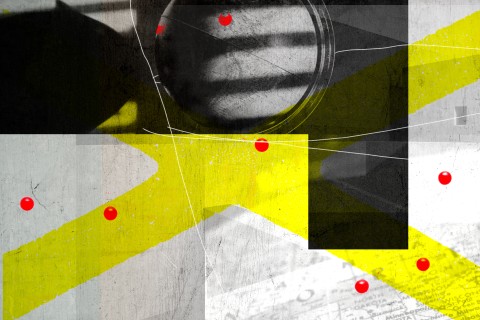Off by nine miles: Isaiah 60:1-7; Matthew 2:1-12
Herod tells the Eastern intellectuals the truth, and the rest is history.
Matthew is not the first one to imagine three rich wise guys from the East coming to Jerusalem. His story line and plot come from Isaiah 60, a poem recited to Jews in Jerusalem about 580 b.c.e. These Jews had been in exile in Iraq for a couple of generations and had come back to the bombed-out city of Jerusalem. They were in despair. Who wants to live in a city where the towers are torn down and the economy has failed, and nobody knows what to do about it?
In the middle of the mess, an amazing poet invites his depressed, discouraged contemporaries to look up, to hope and to expect everything to change. “Rise, shine, for your light has come.” The poet anticipates that Jerusalem will become a beehive of productivity and prosperity, a new center of international trade. “Nations will come to your light, and kings to the brightness of your dawn . . .” Caravans loaded with trade goods will come from Asia and bring prosperity. This is cause for celebration. God has promised to make the city work effectively in peace, and a promise from God is very sure.
Like Matthew, the wise men know about Isaiah 60. They know they are to go to Jerusalem and to take rare spices, gold and frankincense and myrrh. Most important, they know that they will find the new king of all peace and prosperity. But when Herod (the current king in Jerusalem) hears of these plans, he is frightened. A new king is a threat to the old king and the old order.
Then a strange thing happens. In his panic, Herod arranges a consultation with the leading Old Testament scholars, and says to them, “Tell me about Isaiah 60. What is all this business about camels and gold and frankincense and myrrh?” The scholars tell him: You have the wrong text. And the wise men outside your window are using the wrong text. Isaiah 60 will mislead you because it suggests that Jerusalem will prosper and have great urban wealth and be restored as the center of the global economy. In that scenario, the urban elites can recover their former power and prestige and nothing will really change.
Herod does not like that verdict and asks, defiantly, “Well, do you have a better text?” The scholars are afraid of the angry king, but tell him, with much trepidation, that the right text is Micah 5:2-4:
But you, O Bethlehem of Ephrathah . . . from you shall come forth for me one who is to rule in Israel, whose origin is from of old . . .
This is the voice of a peasant hope for the future, a voice that is not impressed with high towers and great arenas, banks and urban achievements. It anticipates a different future, as yet unaccomplished, that will organize the peasant land in resistance to imperial threat. Micah anticipates a leader who will bring well-being to his people, not by great political ambition, but by attentiveness to the folks on the ground.
Herod tells the Eastern intellectuals the truth, and the rest is history. They head for Bethlehem, a rural place, dusty, unnoticed and unpretentious. It is, however, the proper milieu for the birth of the One who will offer an alternative to the arrogant learning of intellectuals and the arrogant power of urban rulers.
The narrative of Epiphany is the story of these two human communities: Jerusalem, with its great pretensions, and Bethlehem, with its modest promises. We can choose a “return to normalcy” in a triumphalist mode, a life of self-sufficiency that contains within it its own seeds of destruction. Or we can choose an alternative that comes in innocence and a hope that confounds our usual pretensions. We can receive life given in vulnerability. It is amazing—the true accent of epiphany—that the wise men do not resist this alternative but go on to the village. Rather than hesitate or resist, they reorganize their wealth and learning, and reorient themselves and their lives around a baby with no credentials.
Bethlehem is nine miles south of Jerusalem. The wise men had a long intellectual history of erudition and a long-term practice of mastery. But they had missed their goal by nine miles. It is mind-boggling to think how the story might have gone had Herod’s interpreters not remembered Micah 5.
Our task is to let the vulnerability of Micah 5 disrupt the self-congratulation of Isaiah 60. Most of us are looking in the wrong place. We are off by nine miles. We are now invited to travel those hard, demanding miles away from self-sufficiency. Epiphany is a good time to take the journey, for September 11 reminds us of the shambles that can come through our excessive pretension. The way beyond is not about security and prosperity but about vulnerability, neighborliness, generosity, a modest future with spears turned into pruning hooks and swords into plowshares.
The wise men, and the eager nations ready for an alternative, made the trip. It would be ironic if the “outsiders” among us made that move and we who are God’s own people resisted. Imagine a nine-mile trip . . . and a very different way home!




